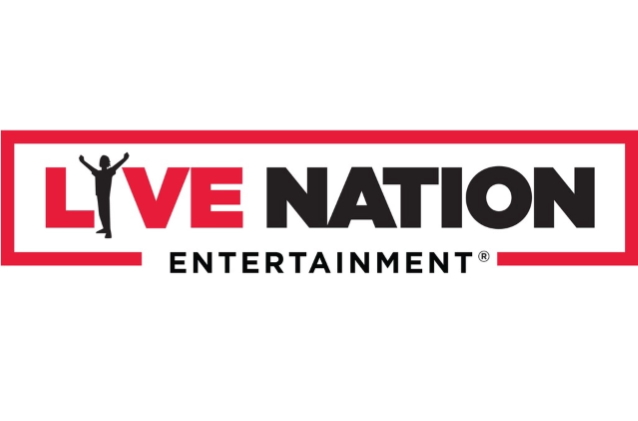
LIVE NATION Responds To Lawsuit Over Alleged TICKETMASTER Monopoly
May 23, 2024Live Nation has responded to the U.S. Department Of Justice's claim that it maintains a monopoly over the live entertainment industry.
On Thursday, May 23, the Department Of Justice sued to break up Live Nation, the parent company of Ticketmaster, over alleged antitrust violations. The lawsuit, joined by 30 states, claims that Live Nation's 2010 merger with Ticketmaster created a dominant entity in the live event industry. The company, which generates $22 billion a year in revenue, operates and manages ticket sales for live entertainment globally and also owns and operates more than 265 entertainment venues in North America, including more than 60 of the top 100 amphitheaters.
"We allege that Live Nation relies on unlawful, anticompetitive conduct to exercise its monopolistic control over the live events industry in the United States at the cost of fans, artists, smaller promoters, and venue operators," attorney general Merrick Garland said in a statement. "The result is that fans pay more in fees, artists have fewer opportunities to play concerts, smaller promoters get squeezed out, and venues have fewer real choices for ticketing services. It is time to break up Live Nation-Ticketmaster."
In a statement, Live Nation's executive vice president Dan Wall rejected these allegations, saying: "The Department of Justice and a group of State Attorneys General have now filed the much-anticipated antitrust suit against Live Nation and Ticketmaster. This follows intense political pressure on DOJ to file a lawsuit, and a long-term lobbying campaign from rivals and ticket brokers seeking government protection for themselves.
"The complaint — and even more so the press conference announcing it — attempt to portray Live Nation and Ticketmaster as the cause of fan frustration with the live entertainment industry. It blames concert promoters and ticketing companies — neither of which control ticket prices — for high ticket prices. It ignores everything that is actually responsible for higher ticket prices, from increasing production costs to artist popularity, to 24/7 online ticket scalping that reveals the public's willingness to pay far more than primary tickets cost. It blames Live Nation and Ticketmaster for high service charges, but ignores that Ticketmaster retains only a modest portion of those fees. In fact, primary ticketing is one of the least expensive digital distributions in the economy.
"It is also absurd to claim that Live Nation and Ticketmaster are wielding monopoly power. The defining feature of a monopolist is monopoly profits derived from monopoly pricing. Live Nation in no way fits the profile. Service charges on Ticketmaster are no higher than elsewhere, and frequently lower. And even accounting for sponsorship, an advertising business that helps keep ticket prices down, the company's overall net profit margin is at the low end of profitable S&P 500 companies.
"The trendlines confirm Live Nation's lack of market power. Every year, competition in the industry drives Live Nation to earn lower take rates from both concert promotion and ticketing. The company is profitable and growing because it helps grow the industry, not because it has market power.
"It was evident in our discussions with the DOJ Front Office that they just did not want to believe the numbers. The data conflicted too much with their preconception that Live Nation belongs in the ranks of the other 'tech monopolists' they have targeted.
"It is also clear that we are another casualty of this Administration's decision to turn over antitrust enforcement to a populist urge that simply rejects how antitrust law works. Some call this 'Anti-Monopoly', but in reality it is just anti-business. A central tenet of these populists is that antitrust should target companies that have grown large enough that in some nebulous way they 'dominate' markets — even if they attained their size through success in the marketplace, not practices that harm consumers, which is the focus of antitrust laws. 'Dominant platform companies', this thinking goes, should just not be allowed to vertically integrate in most circumstances, including for distinctly non-antitrust reasons such as alleged 'conflicts of interest.
"There is no legal basis for objecting to vertical integration on these grounds. Antitrust law views vertical integration as procompetitive in most circumstances. As the leading antitrust treatise states, 'vertical integration is ubiquitous and … [in] the great majority of cases no anticompetitive consequences can be attached to it.' And, critically, Live Nation can offer and has offered fans, artists, venues and the rest of the performance ecosystem better prices and better services than they would receive if these complementary businesses were separated. Ticketmaster in particular is a far better, more artist- and fan-focused business under Live Nation's ownership than it ever was as a standalone company. But that's not how this DOJ sees it. They are reflexively antagonistic to vertical integration.
"The Obama Administration saw it differently. It allowed Live Nation and Ticketmaster to merge, and in defending that position acknowledged that there was no legal basis for challenging the vertical aspects of the merger — specifically, allowing a large concert promoter to combine with a large ticketing company. In one filing, it said that it had 'determined that it could not prove that the vertical integration resulting from the merger would significantly harm competition in the concert promotion market.' There is no factual basis for concluding otherwise today. The world is a better place because of that merger, not a worse one."
The Department Of Justice's lawsuit didn't specify how the company should be broken up or how much more fans paid for tickets collectively because of the alleged monopolistic behavior.
